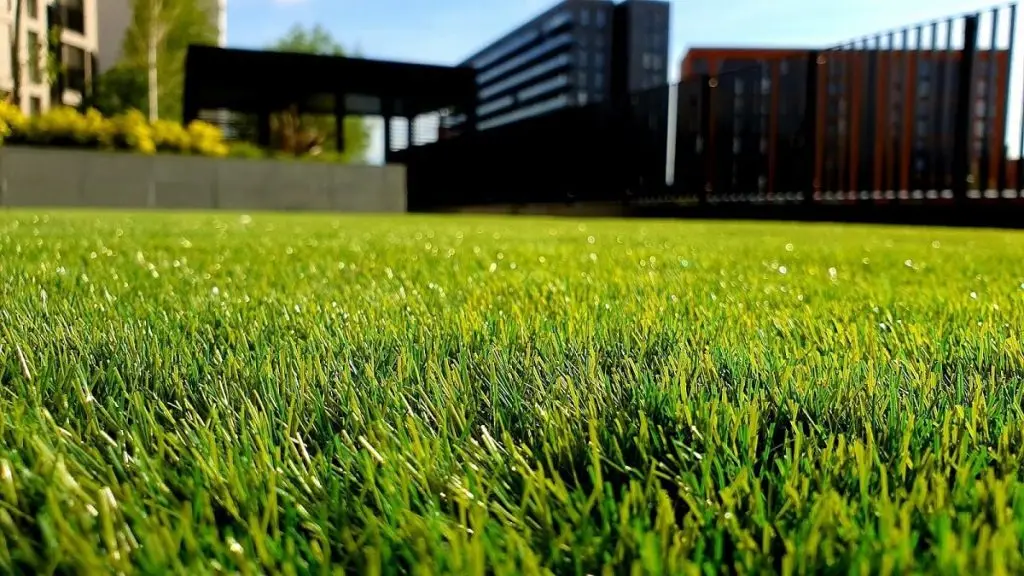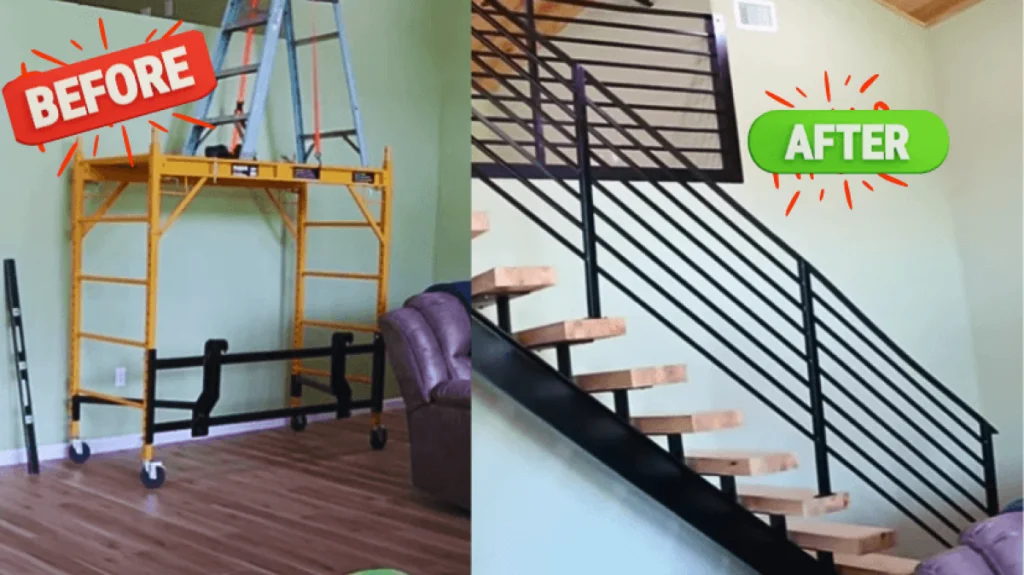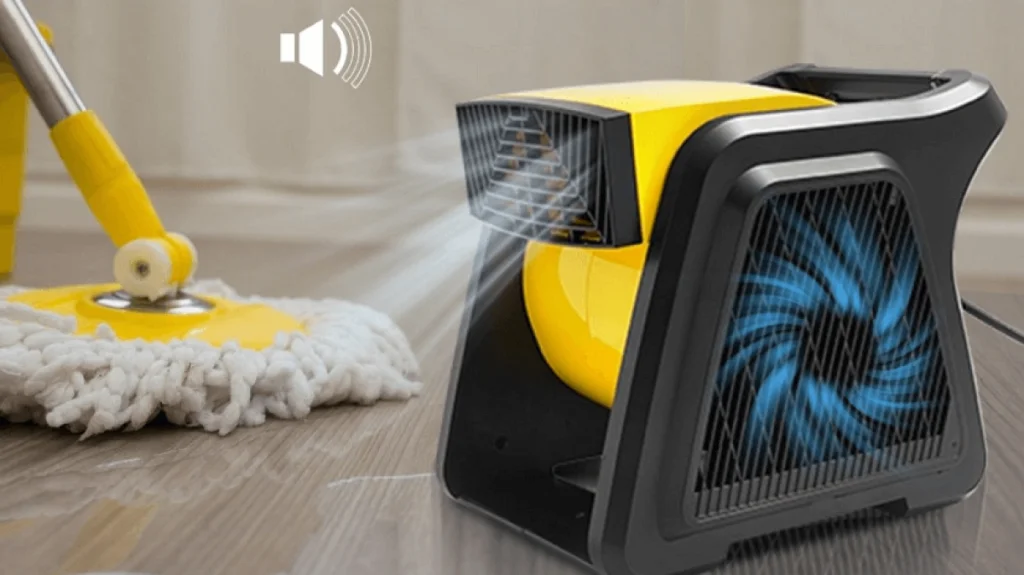It’s always a pleasure to look out at a lush, green lawn. A healthy yard doesn’t just boost your home’s curb appeal; it adds value to your property and creates a welcoming space for family and friends.
However, maintaining that perfect lawn can be challenging, especially with the changing seasons. From the harsh winter frost to the scorching summer sun, your lawn endures a lot, and these seasonal changes can leave it looking tired and patchy. But don’t worry – revitalizing your lawn doesn’t have to be overwhelming.
Asking ‘How do I fix my lawn?’ or ‘How do I fix my yard?’ Just keep reading. In this article, we’ll walk you through easy, step-by-step instructions on how to repair your yard to make it look fresh again. We will also be showing you some helpful tools, like VEVOR’s yard maintenance products, that we think will make the job even simpler for you.
Table of contents
Common Causes of Yard Damage: What’s Hurting Your Grass?
Before we go into how to fix your grass lawn, let’s take a quick look at some common culprits behind lawn damage. When you know what’s causing the problem, it’s easier to fix it.
So, let’s see a few factors that might be hurting your grass.
Weather Extremes
Your lawn is constantly exposed to the elements, and weather extremes can take a toll. Drought dries out the soil and weakens the grass, while heavy rain can cause waterlogging, which drowns the roots and leads to patchy growth.
Pests and Insects
Tiny pests can cause big problems. Insects like grubs and armyworms often go unnoticed, but they damage your lawn by eating through the roots, leaving behind bare spots and unhealthy grass.
Heavy Foot Traffic and Soil Compaction
Do you have people frequently walking or playing on your lawn? This can have a negative effect on the soil. Yes, the soil can become compact.
When the soil gets too tight, water and nutrients can’t reach the grassroots. This can make the lawn thin out and look worn. Hence, a need for effective lawn recovery measures.
Poor Lawn Maintenance
Neglecting to water, mow, or fertilize your yard regularly can lead to trouble. Areas of the lawn that don’t get proper care can become weak, making it easier for weeds, diseases, or pests to take over.
Identifying the Problems in Your Yard
Before you start the journey of how to repair your yard, it’s important to spot the signs of damage.
Look for:
- Dead spots where the grass has turned brown
- Thinning areas that don’t seem to grow well
- Uneven patches that might signal underlying soil issues.
A great way to check your soil’s health is by using soil testing tools, like those from VEVOR.
These tools help you analyze the pH and nutrient levels in your soil, giving you the insight you need to fix any problems and promote healthy grass growth.
How to Repair Your Yard: A Step-by-Step Approach
As we earlier pointed out, reviving your lawn doesn’t have to be overwhelming. You just need to know what exactly to do.
So, for people asking, ‘How do I repair my lawn?’ We would recommend you follow these simple steps for effective lawn recovery. They will help with how to fix your lawn and bring it back to life.
Step 1: Assess the Damage
Walk through your yard and take note of the severity of the damage. Look for dead spots, thinning grass, and compacted soil.
This is also a good time to test your soil for nutrient levels. Using tools like VEVOR’s soil testing kits can help you check root health and determine if the soil needs improvement.
Step 2: Aerate to Improve Soil Compaction
Compacted soil can prevent water and nutrients from reaching the grassroots. In that case, what you need to relieve the issue is aeration.
Just find a way to poke small holes in the soil. That will help improve absorption and give your lawn a chance to recover. VEVOR also has aeration tools you can leverage to make the process quick and easy.
Step 3: Remove Weeds and Debris
Weeds steal nutrients from your grass, and debris like leaves can block sunlight. So, why leave them on your lawn?
Use appropriate garden tools to pull weeds out by the roots and clear away any leftover debris that might hinder new growth.
Step 4: Reseeding and Fertilizing

Once your yard is cleared, it’s time to reseed. Choose a grass seed that matches your lawn type and sprinkle it over the bare spots. Fertilizing after seeding is also crucial. It provides the nutrients needed for strong root development.
So, get the right fertilizer and apply it for a quick recovery of your lawn. This is one process you don’t want to forget when it comes to how to repair grass lawns.
Step 5: Watering and Aftercare
Perhaps you already know this; watering is key for a newly repaired lawn. Make sure to keep the soil moist but not soggy. Maintain a consistent watering schedule, especially in the first few weeks to help your grass grow strong and lush.
However, we recommend you keep an eye on the weather and adjust your watering to avoid over- or under-watering your lawn.
Lawn Recovery Tips for Different Seasons
Now that you know the steps to follow to repair your yard, we need to mention that lawn recovery isn’t a one-size-fits-all process. It actually varies depending on the season.
Each season presents unique challenges. So, in addition to the tips provided above, here are some tailored tips to help keep your yard healthy year-round.
Spring
Spring is the perfect time to jumpstart your lawn recovery. After winter, your grass might be patchy and weak.
Start by aerating the soil to improve water and nutrient absorption, and reseed any bare spots. There are also various VEVOR’s aeration tools you can use to make the process easier. You might need to get a good hose or sprinkler system to keep the lawn properly watered as it begins to grow again.
Summer
Everyone knows how hot it can be during the summer. The summer heat can stress your lawn. Consider watering deeply but less frequently during this time. That will help the grass grow stronger roots.
Regularly mow the lawn, but avoid cutting it too short, as this can expose the grass to sun damage. Get VEVOR’s garden hoses and sprayers to help you better keep your lawn hydrated during these hot months.
Autumn
Autumn is a prime time for lawn recovery, as cooler temperatures allow for optimal grass growth. This is the perfect season to reseed, fertilize, and remove weeds.
Get relevant tools like the VEVOR leaf blower that will help you easily clear away fallen leaves and debris, they will help prepare your lawn for the winter ahead.
Winter
Though your lawn is dormant in winter, there’s still work to be done. Clear away snow or ice buildup to avoid damaging the grass underneath.
VEVOR also has a range of tools that can assist with snow removal and ensure your yard is ready for spring recovery. The brand has everything any lawn owner would need when looking for how to repair grass lawns!
Recommended For Your Project
Essential Tools for Fixing Your Yard
When it comes to lawn recovery, having the right tools can make all the difference.
Over the years, we’ve tested several brands, and VEVOR has consistently stood out as one of the most reliable. It offers everything a lawn owner needs to bring their yard back to life and keep it healthy.
So, let’s talk about some of VEVOR’s top tools that are perfect for fixing your yard.
#1: Lawn Aerators
Aeration is a key step in learning how to fix your grass lawn. Aerators help break up compacted soil, allowing water, air, and nutrients to reach the grass roots.
VEVOR’s aerators are a great choice for this task. They simply make it super easy to improve soil structure and promote healthy grass growth.
#2: Garden Rakes and Weed Pullers
When it comes to clearing debris and removing weeds, garden rakes and weed pullers are essential.
These tools help you clean up your yard and give your grass more room to grow. VEVOR offers multi-purpose gardening tools that make weeding and raking a breeze, saving you time and effort.
#3: Fertilizer Spreaders

Evenly distributing fertilizer is crucial for lawn recovery. Fertilizer spreaders ensure that every part of your yard gets the nutrients it needs.
VEVOR’s fertilizer spreaders are designed for precision, making it easy to spread fertilizer efficiently and give your grass the best chance to thrive.
Mistakes to Avoid When Repairing Your Lawn
Even with the best intentions, it’s easy to make a few missteps when fixing your lawn. Here are some common mistakes to watch out for. You sure don’t want to make them.
Overwatering or underwatering

Too much water drowns your grass, while too little leaves it thirsty. Find the sweet spot – just enough to keep the soil moist but not soggy!
Skipping aeration
Skipping aeration is like trying to plant seeds in concrete. Compact soil suffocates your grass, so don’t forget this step!
Incorrect seed or fertilizer selection
Not all grass seeds and fertilizers are created equal. Make sure you’re using the right ones for your lawn’s specific needs. Choose wisely!
Using the wrong tools or skipping maintenance
Using the wrong tools is like fixing a car with a spoon. And don’t skip regular maintenance – your lawn won’t stay perfect on its own!
Conclusion
Remember, timely yard repair and proper maintenance are key to keeping your lawn healthy and beautiful all year round.
If you’re still asking, ‘How do I repair my lawn?’ you just need to check the sections above for detailed steps to take. By following the right steps and using the right tools from trusted brands like VEVOR, you can transform your yard with ease.
VEVOR’s lawn care collections offer everything you need, from aerators to fertilizer spreaders, leaf blowers, hedge trimmers and more – the brand simply makes yard repair simpler and more efficient.
Ready to bring your lawn back to life? Start your yard repair today by visiting the VEVOR website to buy reliable tools and enjoy a lush, vibrant yard in no time. Now, you know how to fix your lawn – go for it!





